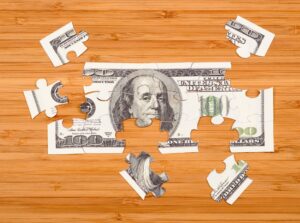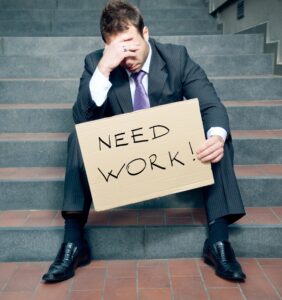In an era where financial literacy is more accessible than ever, the question arises: why do so many individuals still end up broke? This perplexing issue isn’t confined to any single demographic or geographic location; it spans across various segments of society. From unforeseen emergencies to lackluster financial planning, the reasons are manifold and multifaceted, and it’s important to consult a professional insolvency practitioner early on. Here, we delve into the nine most common reasons people end up broke, shedding light on the pitfalls that can lead to a precarious financial situation.
1. Lack of Emergency Savings
One of the fundamental principles of sound financial management is maintaining an emergency fund. Yet, many individuals find themselves unprepared for unexpected expenses such as medical emergencies, car repairs, or sudden job loss. The absence of a safety net can quickly escalate into a cycle of debt as people turn to high-interest credit options, leading to a precarious financial situation that’s hard to escape.
2. Living Beyond Means
In a society that often equates success with material possessions, living beyond one’s means has become a widespread issue. The allure of instant gratification, coupled with the ease of access to credit, tempts many into a lifestyle they cannot afford. The accumulation of unnecessary debt for luxuries rather than necessities is a direct pathway to financial distress.
3. Inadequate Financial Literacy
Despite the wealth of information available, a significant portion of the population lacks basic financial literacy. This gap in knowledge can lead to poor financial decisions, such as high-risk investments without understanding the market or failing to read the fine print on loan agreements. Financial education is crucial in empowering individuals to make informed decisions and avoid pitfalls that could lead to being broke.
4. Failure to Budget and Plan
Budgeting is the cornerstone of financial stability, yet it’s often overlooked. Without a clear understanding of income versus expenses, saving becomes an afterthought, and overspending becomes the norm. This lack of planning not only impedes the ability to save for future goals but also increases vulnerability to falling into debt.
5. High Cost of Living
In many urban areas, the cost of living has skyrocketed, outpacing income growth. Housing, healthcare, and education costs can consume a significant portion of income, leaving little room for savings. This economic squeeze can force individuals into a paycheck-to-paycheck existence with no buffer for financial shocks.
6. Poor Debt Management
Debt, if not managed wisely, can become a relentless burden, particularly when high-interest debts such as credit card balances are involved, which can snowball and consume an ever-larger portion of one’s income. Without a strategic approach to debt reduction, such as prioritizing high-interest debts, seeking lower interest rates, or consolidating loans, individuals can find themselves in a deep financial hole, struggling to climb out and regain their financial footing.
7. Job Loss or Reduced Income
The volatility of the job market can lead to unexpected unemployment or a reduction in income, drastically altering one’s financial landscape and making it difficult to meet even basic living expenses. Without adequate savings or a contingency plan, this sudden loss of income can lead to rapid financial decline – pushing individuals toward the brink of insolvency – and underscoring the importance of having a financial buffer in today’s unpredictable economy.
8. Medical Expenses
Even with health insurance, medical emergencies can lead to substantial out-of-pocket expenses, often catching individuals off guard. In countries without comprehensive healthcare, a single medical emergency can wipe out savings and lead to crippling debt, illustrating the precarious balance between health and financial well-being.
9. Lack of Diversified Income Streams
Reliance on a single source of income is increasingly risky in today’s dynamic economic environment. Job security is no longer a given, and unexpected disruptions can lead to a complete loss of income. Diversifying income streams, whether through investments, side gigs, or acquiring new skills, can provide a financial cushion and reduce the risk of ending up broke.
Avoiding Pitfalls That Cause People to End Up Broke
The journey to financial stability is fraught with challenges, yet understanding the common pitfalls can serve as the first step toward avoiding them. By fostering financial literacy, living within one’s means, and adopting prudent financial practices, individuals can navigate the complexities of personal finance and steer clear of the perilous path that leads to being broke. In a world where economic uncertainties abound, preparedness and knowledge remain our most reliable allies.
Read More:
The Psychology of Poverty: 18 Surprising Effects of Being Broke on Your Mind
Why Being Broke in Your 20s Can Be the Best Thing for Your Future: 13 Reasons
Catherine is a tech-savvy writer who has focused on the personal finance space for more than eight years. She has a Bachelor’s in Information Technology and enjoys showcasing how tech can simplify everyday personal finance tasks like budgeting, spending tracking, and planning for the future. Additionally, she’s explored the ins and outs of the world of side hustles and loves to share what she’s learned along the way. When she’s not working, you can find her relaxing at home in the Pacific Northwest with her two cats or enjoying a cup of coffee at her neighborhood cafe.
















